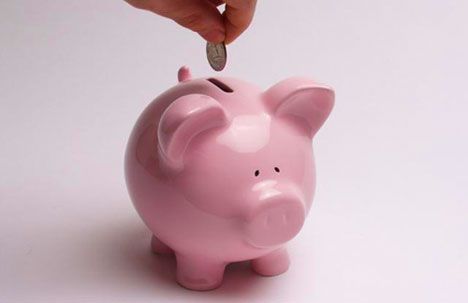Frugality is being thrifty, prudent or economical; avoiding waste. Frugality includes the resourceful use of already owned possessions, often in pursuit of a deeper or longer term goal.
Or in simpler terms, it is living within or even below your means, saving, and investing the difference. To some, frugality is a virtue or a spiritual discipline or even a philosophy.
To me, frugality is a path to happiness. That may seem a strange statement coming from a man whose life’s passion has been business but one form of frugality has been a major component of my business success: I’ve always lived well beneath my income and continually invested the balance. Indeed, when I got my first professional position, I consciously chose to retain the thrifty student lifestyle, reasoning that I’d been happy that way for four years and I didn’t need a new car, furniture, or a fancy apartment to be content.
– A well run business creates prosperity by creating value for consumers who have other good options and choose to buy because it satisfies their desires best. In a competitive environment, one must be continually growing, improving, and innovating in order not to be left behind. One way is to always be alert for ways to “do more without more” i.e. frugally stretching existing resources, finding better ways.
– Frugality is NOT the same as cheap, if by cheap you mean poor quality or non-durable or denying yourself fulfillment. Actually, frugality almost demands quality and durability, anything else tends to be wasteful. Frugality is about finding ways to stretch or create resources to assist you in achieving your true dreams; the dreams that represent your true, lifelong goals and not the pursuit of empty baubles, momentary pleasures that leave you unfulfilled and are often at the expensive of more lasting pursuits. Never give up what you want most for what you want now!
– Frugality is NOT about lifelong denial; it is about the self-awareness to choose to follow YOUR highest values in the moment of temptation. For most, that means choosing long term contentment over immediate gratification aka “a moment on the lips, forever on the hips” (also see “Don’t Eat the Marshmallow”).
– Frugality is RELATIVE to the resources available and the value received. What is extravagant for one is reasonable for another in a different financial situation or stage of life and better $100 spent on a $150 value item than $10 spent on $5 of value.
Closing Quotes:
“I have learned to seek my happiness by limiting my desires, rather than in attempting to satisfy them.” – John Stuart Mill, 1806-1873
“Annual income twenty pounds, annual expenditure nineteen six, result happiness. Annual income twenty pounds, annual expenditure twenty pound ought and six, result misery.” – Charles Dickens, 1812-1870, ‘David Copperfield’
“Frugality is one of the most beautiful and joyful words in the English language and yet one that we are culturally cut off from understanding and enjoying. The consumption society has made us feel that happiness lies in having things and has failed to teach us the happiness of not having things.” – Elise M. Boulding, Quaker sociologist, 1920-2010
“There is no dignity quite so impressive, and no independence quite so important, as living within your means.” – Calvin Coolidge, 1872-1933, 30th President
“The way to wealth is as plain as the way to market. It depends chiefly on two words, industry and frugality: that is, waste neither time nor money, but make the best use of both. Without industry and frugality nothing will do, and with them everything.” – Benjamin Franklin, 1705-1790
As always, I share what I most want/need to learn. – Nathan S. Collier



0 Comments